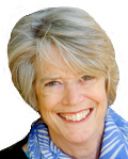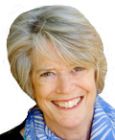Cognition
Hearing Loss, Language and Creating a World
A comment from a reader prompts new thoughts.
Posted September 1, 2014
Earlier this year I wrote an essay in the New York Times about hearing loss, language and the acquisition of reading, “A Son’s Deafness Prompts a Scientific Journey.” The essay was a review of a book by Lydia Denworth called “I Can Hear You Whisper: An Intimate Journey Through the Science of Sound and Language,” published by Dutton.
Recently Kathryn Quirk commented on that essay, which was reprinted on this blog, and I want to post it here. It adds some valuable information to my observations.
“I read your post on being deaf, learning to read and language back in April. Intellectually I got it, but it was a TEDxCambridge talk from this past June that helped me put all the pieces together,” she wrote.
The TEDx Cambridge talk, called “How Words Create Worlds,” features cognitive neuroscientist Sebastian Christian talking about language. We build our own meanings for words, he says, from our individual experiences. “We believe, far too much, that these meanings are shared, and we fight a lot because of that. That belief is the root of misunderstandings, of communication failures, of so many arguments. But we can turn this false belief into a fantastic tool. A tool to argue less and a tool to explore the world around us.”
In his work with deaf and autistic children, Sebastian tries to help them develop their language and “build a normalized model of the world with it.” In this talk, he engages the audience in the kind of word game that he uses with the children he teaches. It’s a fascinating talk.
(It happens that just last night I watched Michel Gondry’s animated documentary about Noam Chomsky’s views, including of course his views on language. “Is the Tall Man Happy?” addresses some of the same issues that Sebastian Christian does.)
Quirk went on:
“On June 5,” Quirk wrote, “I listened to Sebastien Christian, a speech and language pathologist, talk about the fundamental things that deaf children taught him about what language is, how it grows and what it is built from, in a talk dubbed “Words Create Worlds” although I prefer the title “Let’s Destroy a Table.”
“My second answer, or rather the second Ah-hah moment came when I stumbled upon a Huffington Post article about a wonderful couple in California who had just adopted 4 boys. In that piece, the dads recall the first time their newly adopted sons, ages 5 to 11, saw a swimming pool and instead of the expected excitement and joy one might expect of a kid at thd sight of a pool in his very own backyard, these boys had no reaction at all.
"Instead of screams of excitement, the boys, as the newspaper reported, “had puzzled looks on their faces, as they had never seen a pool.”
And, of course, they had no words to express the concept of a swimming pool. Quirk went on, "children born deaf learning sign language are on par with normal audition children when it comes to reading. And as Sebastien shares in his talk, “Children are not sponges, and language is not a bath. Language is enabled and grows through interactions.”
Kathryn Quirk now works with Sebastian, who is developing an app for smartphones for those with hearing loss. It translates auditory sounds into visual and tactile alerts. You can read about it at otosense.com.


